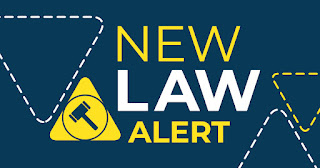On April 23, 2020, the U.S. Small Business Administration issued new guidance on the Paycheck Protection Program under the CARES Act, specifically concerning the SBA’s position on good faith certifications and limiting PPP funding to public companies.
All applicants and recipients of PPP funds should pay close attention to Question 31 of the SBA Guidance:
While the SBA Guidance specifically mentions public companies and their good faith certifications, it is important to note that the good faith certification is required for ALL borrowers. This means that all borrowers should be prepared to demonstrate their basis for their good faith certification. Thus, to mitigate exposure, borrowers are urged to contact their counsel to prepare a paper trail of their loan application process, which should include at the very least any proof that the application is indeed necessary and the basis for all amounts stated on the application (e.g. payroll, projected losses, operating expenses).
All applicants and recipients of PPP funds should pay close attention to Question 31 of the SBA Guidance:
31. Question: Do businesses owned by large companies with adequate sources of liquidity to support the business’s ongoing operations qualify for a PPP loan?
Answer: In addition to reviewing applicable affiliation rules to determine eligibility, all borrowers must assess their economic need for a PPP loan under the standard established by the CARES Act and the PPP regulations at the time of the loan application. Although the CARES Act suspends the ordinary requirement that borrowers must be unable to obtain credit elsewhere..., borrowers still must certify in good faith that their PPP loan request is necessary. Specifically, before submitting a PPP application, all borrowers should review carefully the required certification that “[c]urrent economic uncertainty makes this loan request necessary to support the ongoing operations of the Applicant.” Borrowers must make this certification in good faith, taking into account their current business activity and their ability to access other sources of liquidity sufficient to support their ongoing operations in a manner that is not significantly detrimental to the business. For example, it is unlikely that a public company with substantial market value and access to capital markets will be able to make the required certification in good faith, and such a company should be prepared to demonstrate to SBA, upon request, the basis for its certification. Lenders may rely on a borrower’s certification regarding the necessity of the loan request. Any borrower that applied for a PPP loan prior to the issuance of this guidance and repays the loan in full by May 7, 2020 will be deemed by SBA to have made the required certification in good faith (emphasis added).
While the SBA Guidance specifically mentions public companies and their good faith certifications, it is important to note that the good faith certification is required for ALL borrowers. This means that all borrowers should be prepared to demonstrate their basis for their good faith certification. Thus, to mitigate exposure, borrowers are urged to contact their counsel to prepare a paper trail of their loan application process, which should include at the very least any proof that the application is indeed necessary and the basis for all amounts stated on the application (e.g. payroll, projected losses, operating expenses).
For a further discussion on disclosure, listen to the podcast HERE.











